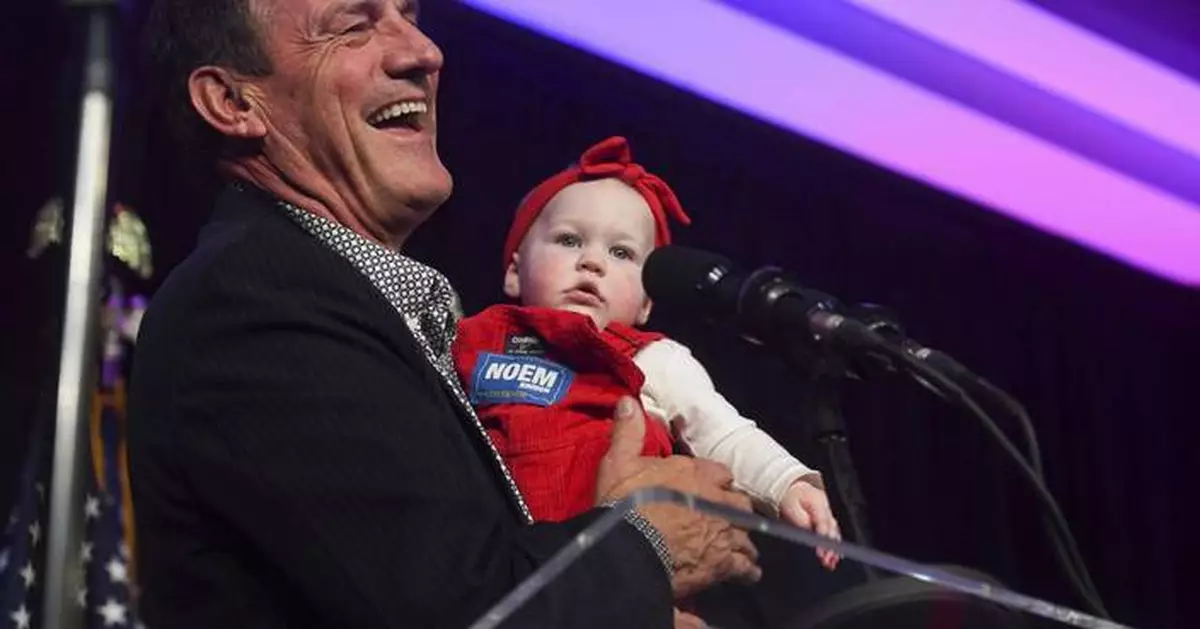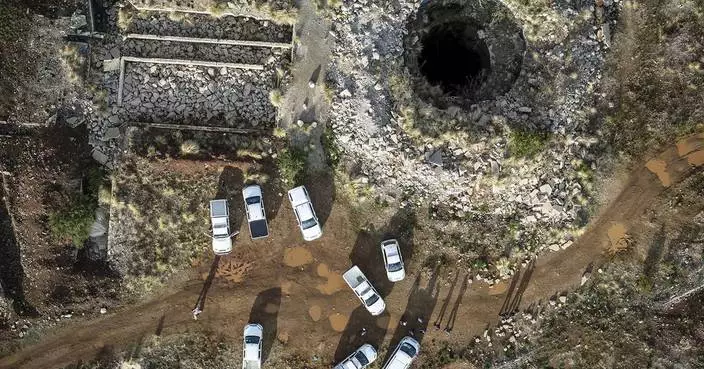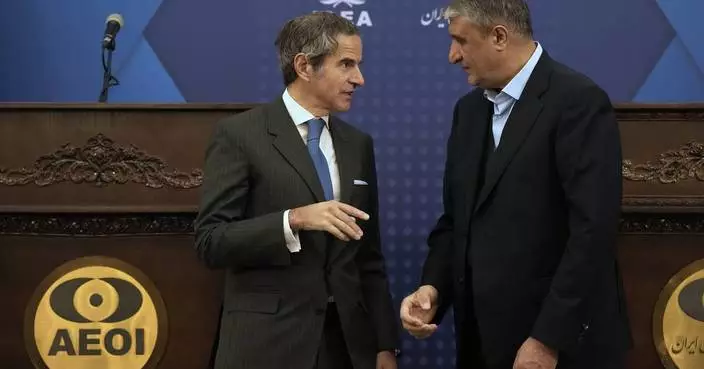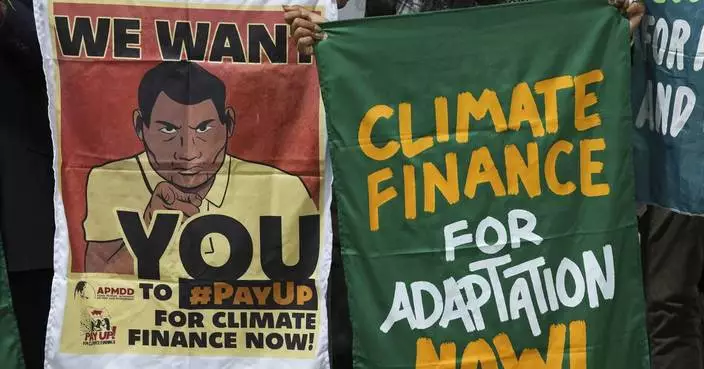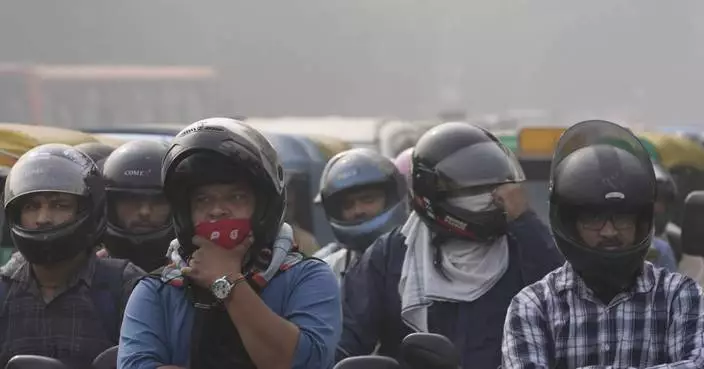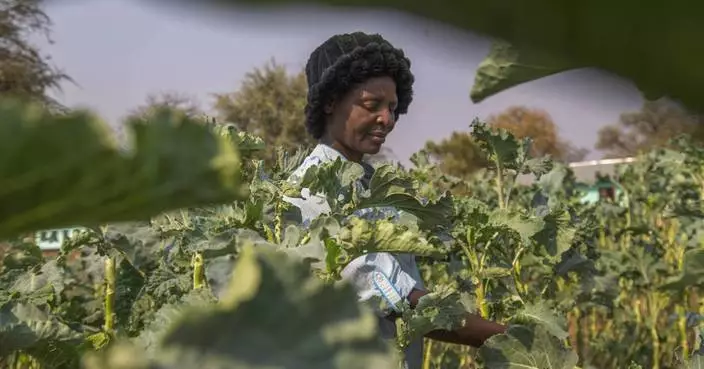South Dakota Gov. Kristi Noem built a national profile during the COVID-19 pandemic, had fellow Republicans buzzing about her future, and published two political memoirs in three years. Lawmakers describe the man set to replace her as a friendly, plain-spoken rancher and specialty welder whom they expect to focus more on issues within the state.
Lt. Gov. Larry Rhoden's biggest — and fleeting — brush with national fame came in 2017 when he triggered a panic alarm during a hearing to test how quickly police would arrive to support his argument that people should be allowed to carry guns in the Capitol.
He's now receiving bipartisan praise as a South Dakota-focused conservative well-versed in how the state's Republican-dominated Legislature works.
President-elect Donald Trump announced Tuesday he would nominate Noem, 52, as the next U.S. homeland security secretary. If the Senate confirms Noem, Rhoden would automatically become governor. It's unclear how quickly that could happen.
Noem's first memoir says Rhoden took her under his wing in 2006 when she won a seat in the South Dakota House where he was serving as majority leader. He served in the Legislature for 16 years. Noem described Rhoden as “direct and honest” when she named him to her ticket for governor in 2018.
Others describe the 65-year-old, operates a custom welding business producing cattle brands, as a true western South Dakota rancher. In his photo on the governor's office website, he wears a leather jacket and cowboy hat.
“He’s legitimately legit," said Republican state Rep. Greg Jamison, of Sioux Falls, one of five House majority whips, calling Rhoden "a real reflection on South Dakota and how anybody from across the country would perceive our state.”
Rhoden pledged Wednesday to keep working closely with Noem through the expected transition but neither of them provided details. Noem posted on social media that she is honored and humbled by Trump's appointment, and Rhoden predicted that she will be an excellent homeland security secretary.
“I have worked with Gov. Noem for decades, first as a legislator and for the last six years as her lieutenant governor,” he said in a statement. “I have seen her leadership transform this state to advance freedom and opportunity.”
Rhoden is considered a possible Republican candidate for governor in 2026, when Noem would have been term-limited. U.S. Rep. Dusty Johnson and state Attorney General Marty Jackley also are possible contenders.
State lawmakers do not expect big policy shifts once Rhoden takes office: Like Noem, he embodies the socially conservative, small-government Republican common in Plains and western states. But they don’t expect him to spend any time focusing on national politics like his predecessor.
Rhoden has always been more visible in the state capital of Pierre, Jamison said.
“Larry is often seen in the hallways around the Capitol and at different events. He attends a lot of them. I see him all the time socializing with everybody. Gov. Noem was a little more out of sight in that fashion,” he said.
“This is a guy who was on the school board and then ran for the Legislature and did that for a long time and rose up through the ranks,” Jamison said.
Retiring state Sen. Lee Schoenbeck, the top GOP leader in the Senate, said Rhoden is a good problem solver but more importantly he’s a “South Dakota kid.”
“His interests will all be within the (state’s) 605 area code,” Schoenbeck said.
Term-limited House Speaker Hugh Bartels agreed Rhoden would offer a distinct type of leadership.
"Oh yeah. I think there will be differences in style,” Bartels said. "They’re just different people.”
Before Noem, perhaps the two best-known political figures from South Dakota were Democrats: former U.S. Sen. George McGovern, the party's 1972 presidential nominee, and former U.S. Senate Majority Leader Tom Daschle. On Wednesday, Republican senators elected John Thune, who unseated Daschle in 2004, as the next majority leader.
South Dakota hasn't elected a Democratic governor in 45 years, and more than 90% of the 35 state senators and 70 state House members will be Republicans after this year's elections.
The dominance of GOP conservatives hasn't always meant harmony. Some harder-right Republicans have fought with Noem and other more establishment Republicans over issues such as cutting taxes, COVID-19 vaccine exemptions, transgender athletes, commercial surrogacy, and landowners' rights.
Lawmakers allied with the Freedom Caucus, which formed in 2022 to push the Legislature and Noem to the right, will lead both chambers come January.
Michael Card, professor emeritus of political science at the University of South Dakota, said “the Freedom Caucus probably would have wanted a pound of flesh,” if Noem had not been nominated for a Cabinet position. He warned that "Mr. Rhoden may face fights simply of guilt by association.”
But lawmakers generally praised Rhoden for his ability to build alliances and work across the aisle.
Republican state Rep. Tony Venhuizen, of Sioux Falls, said building relationships has always been Rhoden's “real strength.”
Incoming House Minority Leader Erin Healy, a Sioux Falls Democrat, welcomed the transition.
“Lieutenant-Governor Rhoden has demonstrated a willingness to collaborate," Healy said. “So I’m very optimistic that as governor he will foster an open, transparent dialogue with the Legislature.”
Hanna reported from Topeka, Kansas, and Karnowski, from Minneapolis. Associated Press writer Stephen Groves in Washington, D.C., contributed.
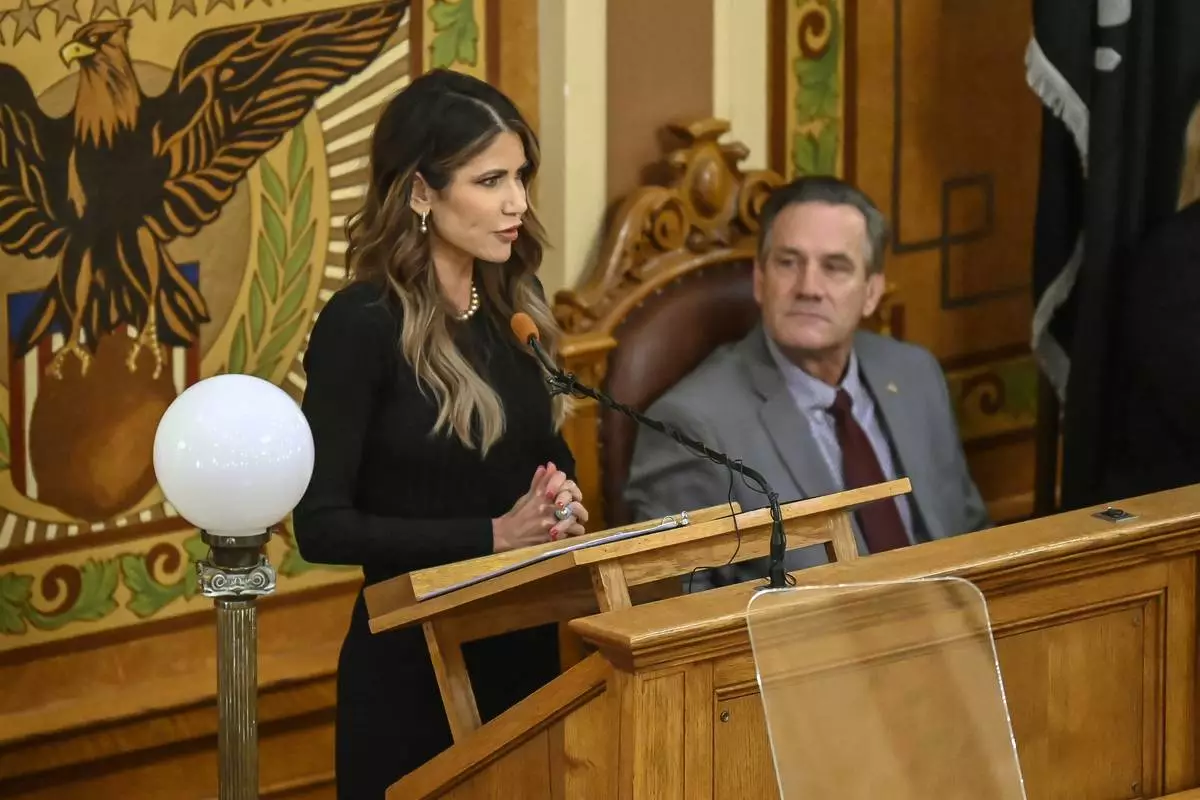
FILE - South Dakota Gov. Kristi Noem delivers her budget address for the fiscal year 2024 on Dec. 6, 2022, in the House Chambers at the State Capitol in Pierre, S.D. Lt. Gov. Larry Rhoden listens at right. (Matt Gade/Rapid City Journal via AP, File)
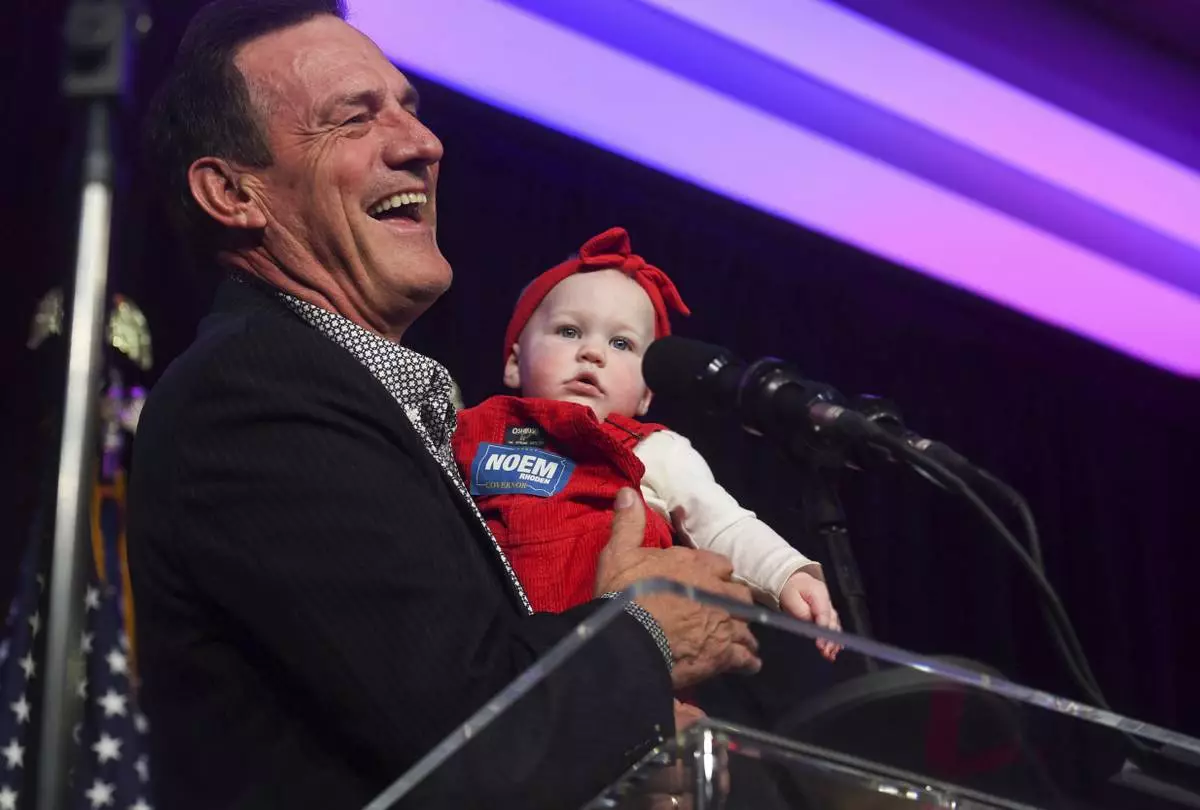
FILE - Lt. Gov. Larry Rhoden holds his granddaughter while accepting re-election to his position during an election night campaign event, Nov. 8, 2022, in Sioux Falls, S.D. (Erin Woodiel/The Argus Leader via AP, File)
OME, Japan (AP) — Deep in a dark warehouse the sake sleeps, stored in rows of giant tanks, each holding more than 10,000 liters (2,640 gallons) of the Japanese rice wine that is the product of brewing techniques dating back more than 1,000 years.
Junichiro Ozawa, the 18th-generation head of Ozawa Brewery, founded in 1702, hopes sake-brewing will win recognition as a UNESCO Intangible Cultural Heritage, when the decision is made next month.
“We always think about the people who’re enjoying our sake when we make it. I’m now so excited, imagining the faces of all the people around the world,” he told reporters Wednesday during a tour of his brewery on the pastoral outskirts of Tokyo.
Sake, the drink of choice for the nobility in “The Tale of Genji” — Japan's most celebrated work of literature — has been widening its appeal, boosted by the growing international popularity of Japanese cuisine.
Sake exports from Japan total more than 41 billion yen ($265 million) a year, with the biggest destinations being the U.S. and China, according to the Japan Sake and Shochu Makers Association.
That’s up from about 22 billion yen in 2018. But exports still make up a tiny fraction of overall sake production in Japan. Brazil, Mexico and Southeast Asia, as well as France and the rest of Europe, all places where Japanese restaurants are gaining popularity, are starting to take a liking to sake.
What’s key to sake-making, which takes about two months, including fermentation and pressing, are the rice and the water.
For a product to be categorized Japanese sake, the rice must be Japanese. The relatively soft quality of freshwater in Japan, like the supplies provided by the two wells at Ozawa Brewery, is also critical.
Among Ozawa’s sake is the full-bodied aromatic Junmai Daiginjo, one of the top offerings, with 15% alcohol content and costing about 3,630 yen ($23) for a 720 milliliter bottle.
Karakuti Nigorizake is unrefined sake, murky and not clear like usual sake, with 17% alcohol content and a rugged no-nonsense taste. It sells for 2,420 yen ($16) for a 1,800 milliliter bottle.
The religious connotations of sake are evident at the brewery. The big cedar-leaves ball hanging under the eaves is a symbol of a shrine for the god of sake-making. In Japan, sake is used to purify and to celebrate. Sips from a cup signify the sealing of a marriage.
“Sake is not just an alcoholic beverage. It is Japanese culture itself,” said Hitoshi Utsunomiya, director of the Japan Sake and Shochu Makers Association.
The UNESCO Intangible Cultural Heritage designation is given to not just historical monuments but also practices passed down generations, such as oral traditions, performing arts, rituals and festivals.
It’s not meant to be used for commercial purposes. But sake officials make no secret of their hope that it will boost global sales, helping the tradition stay alive amid competition from beer, wine and other modern beverages.
Among previous Intangible Cultural Heritage inclusions are Kabuki theater and Gagaku court music from Japan, as well as Sona, which are drawings on sand in Angola; the Chinese zither called guqin and Cremonese violin craftsmanship from Italy. Washoku, or Japanese cuisine, won the honors in 2013.
One reason for sake’s growing popularity around the world is that its smooth flavor goes well with varieties of food, including sushi, spicy Asian and Western dishes, says Max Del Vita, a certified sake sommelier and co-founder of The Sake Company, an import and distribution retailer in Singapore.
“These brewers are cultural stewards, passing down techniques through generations and blending ancient practices with quiet innovation,” he told The Associated Press. “Sake is more than a drink. It is a living embodiment of Japan’s seasonal rhythms, community values and artistic heritage.”
Yuri Kageyama is on X: https://x.com/yurikageyama

Bottles of Sawanoi, a Japanese sake brand by Ozawa Sake Brewery, are prepared for tasting at a room during a media tour at the brewery in Ome, on the western outskirts of Tokyo, Japan, Wednesday, Nov. 13, 2024. (AP Photo/Hiro Komae)
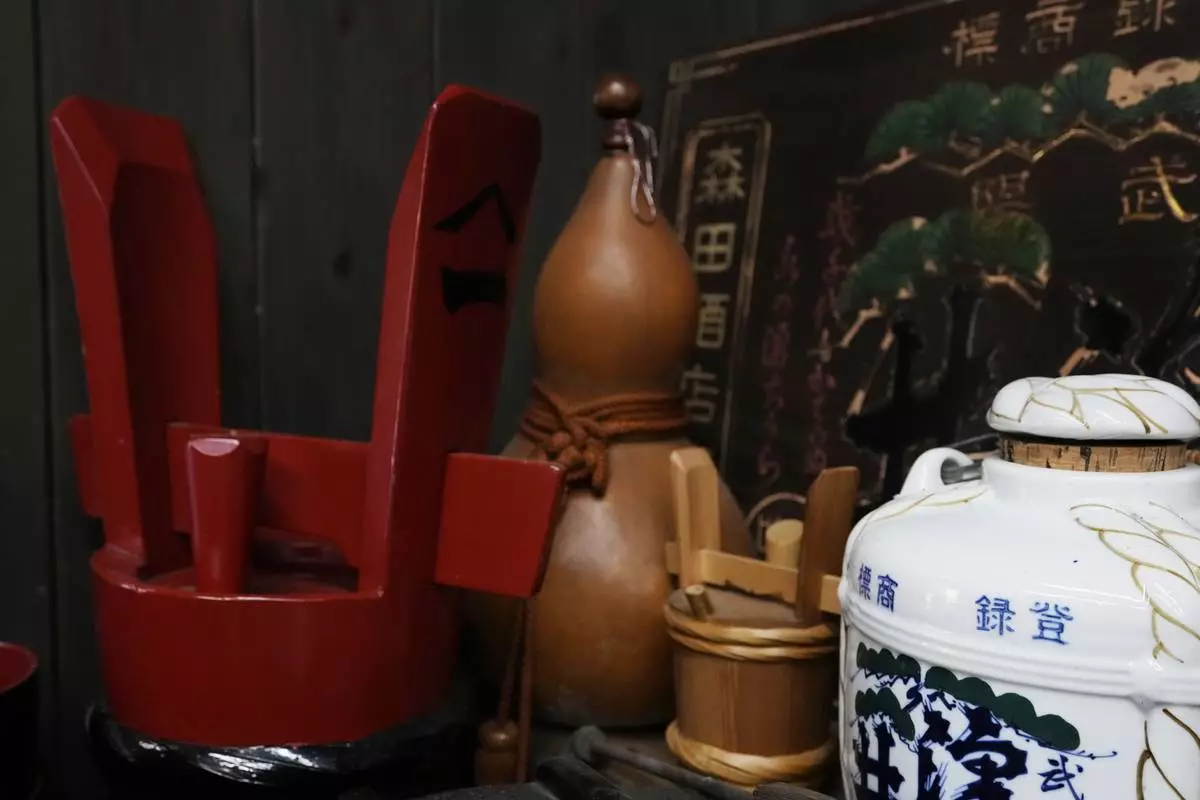
Traditional containers to keep Japanese sake are placed for decorations at a room shown during a media tour at the Ozawa Sake Brewery in Ome, on the western outskirts of Tokyo, Japan, Wednesday, Nov. 13, 2024. (AP Photo/Hiro Komae)

Bottles of Sawanoi, a Japanese sake brand by Ozawa Sake Brewery, are prepared for tasting at a room during a media tour at the brewery in Ome, on the western outskirts of Tokyo, Japan, Wednesday, Nov. 13, 2024. (AP Photo/Hiro Komae)
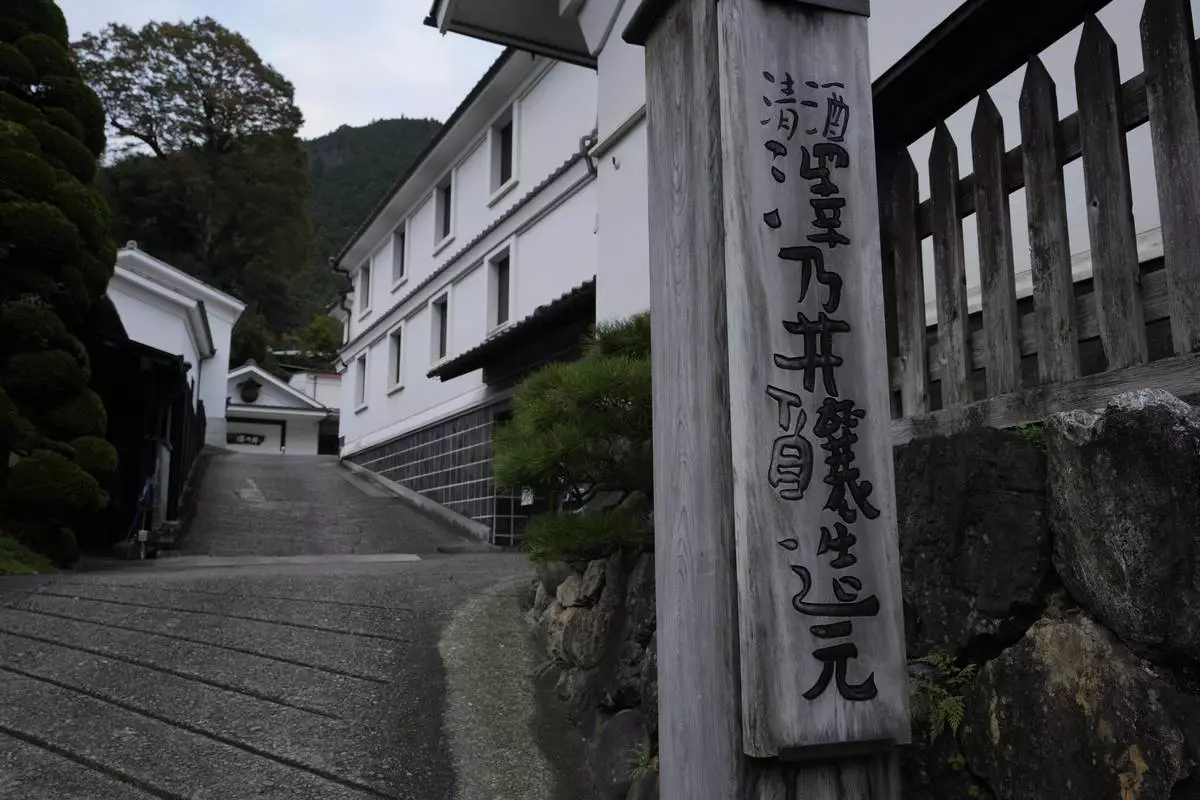
A sign for the brewery of "Sawanoi," a Japanese sake brand, is seen at the entrance of Ozawa Sake Brewery in Ome, on the western outskirts of Tokyo, Japan, Wednesday, Nov. 13, 2024. (AP Photo/Hiro Komae)
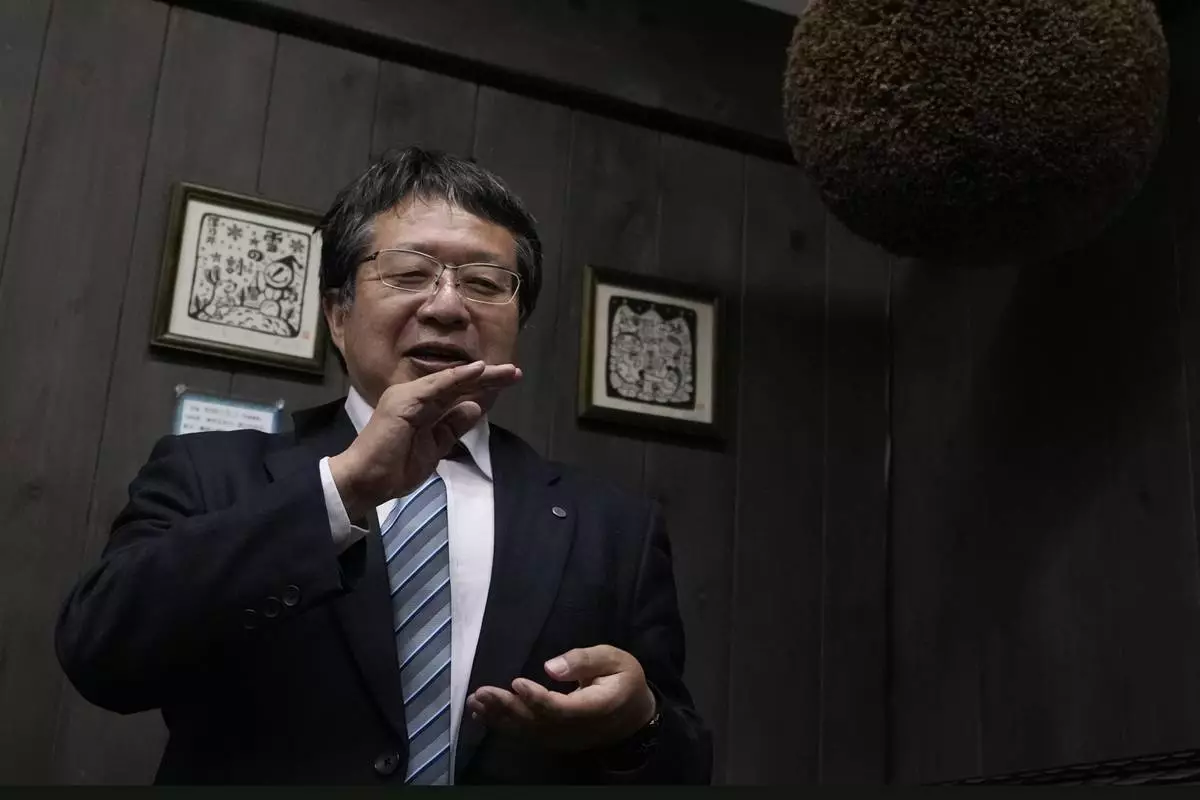
Hitoshi Utsunomiya, director of the Japan Sake and Shochu Makers Association, speaks during a media tour at Ozawa Sake Brewery in Ome, on the western outskirts of Tokyo, Japan, Wednesday, Nov. 13, 2024. (AP Photo/Hiro Komae)
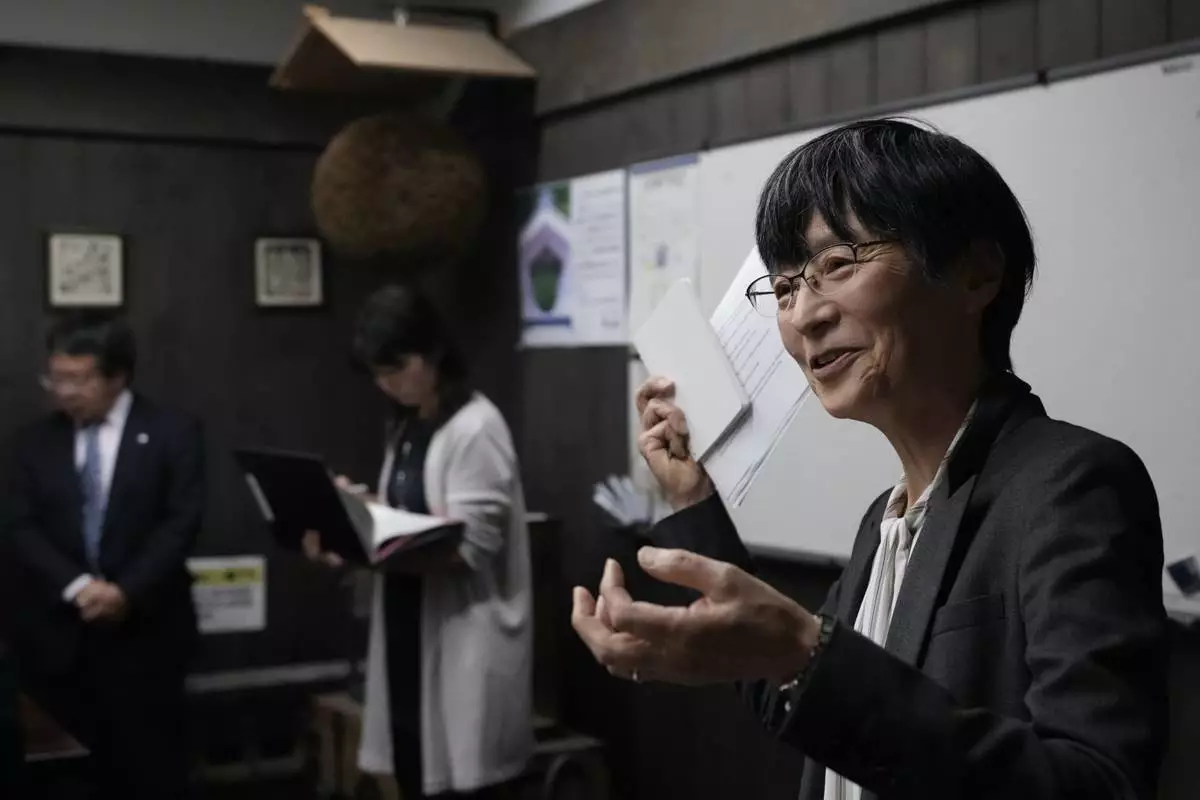
Nami Goto, managing director of Research and Development for the Brewing Society of Japan, speaks during a media tour at Ozawa Sake Brewery in Ome, on the western outskirts of Tokyo, Japan, Wednesday, Nov. 13, 2024. (AP Photo/Hiro Komae)
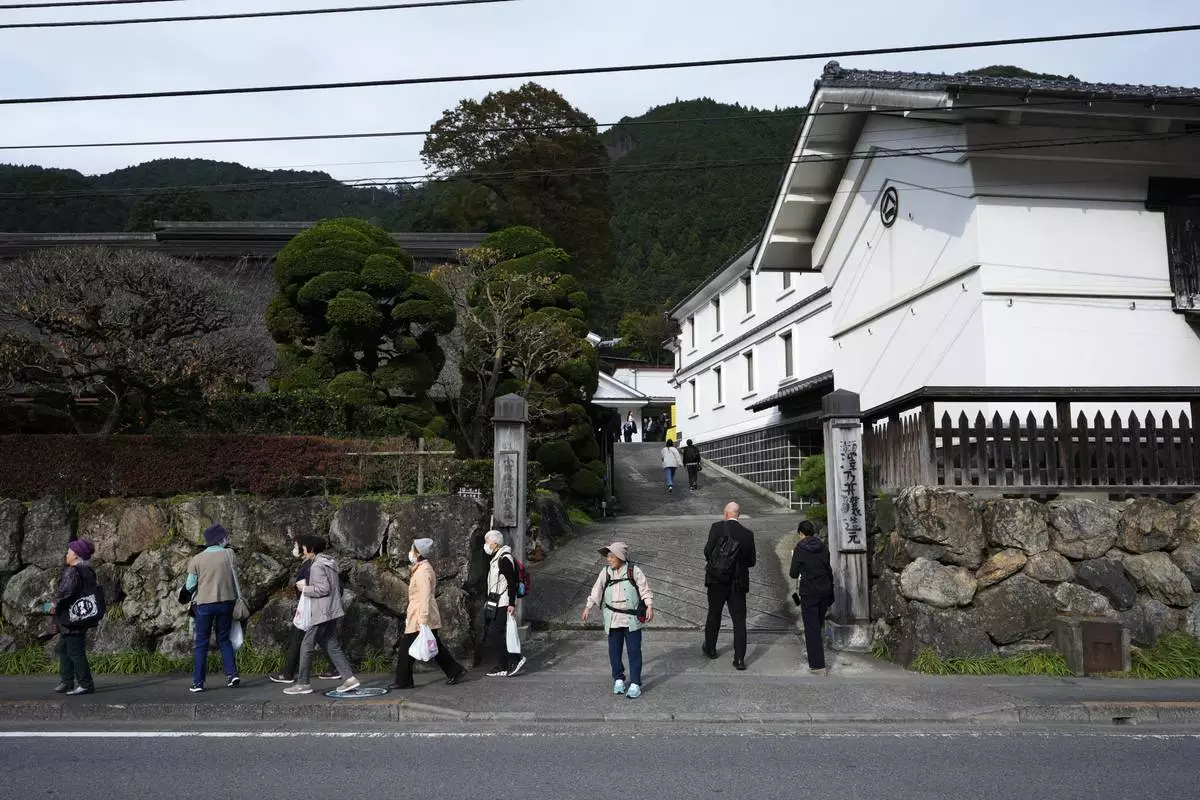
Visitors of Ozawa Sake Brewery leave as journalists enter the brewery on a media tour in Ome, on the western outskirts of Tokyo, Japan, Wednesday, Nov. 13, 2024. (AP Photo/Hiro Komae)
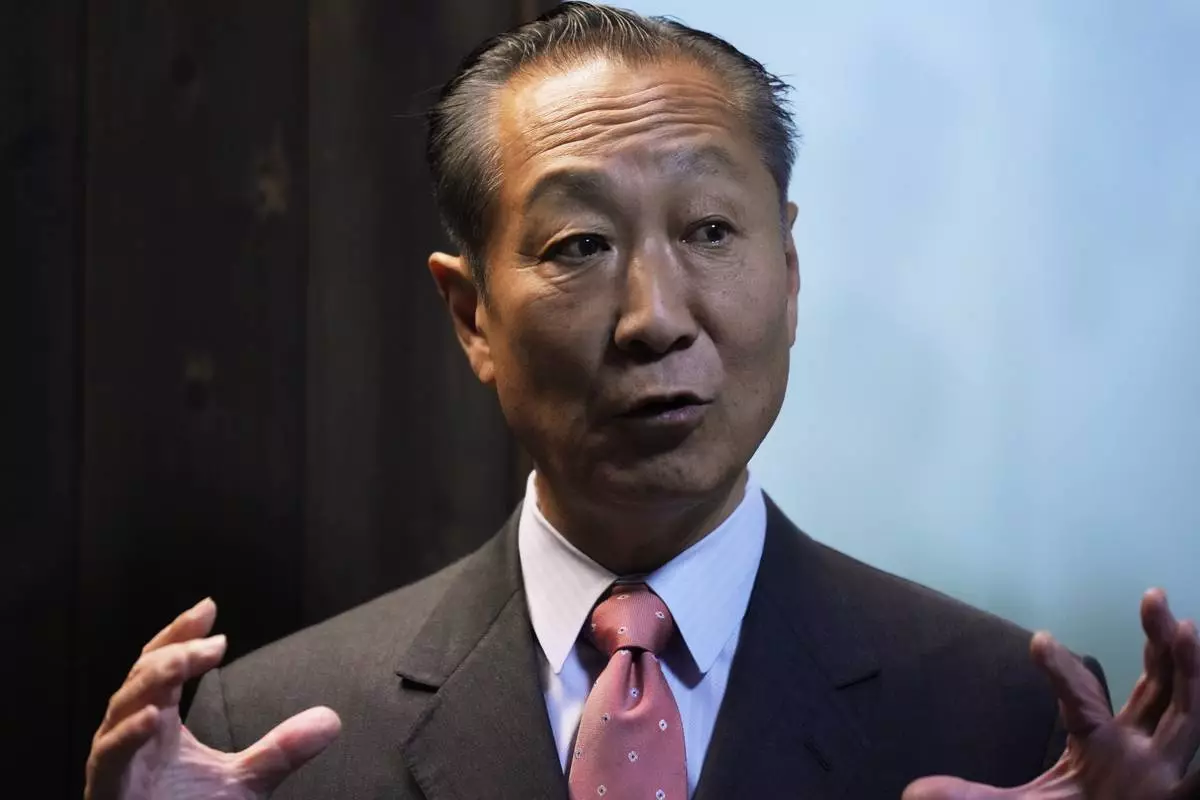
Junichiro Ozawa, head of Ozawa Sake Brewery, speaks during a media tour at the brewery in Ome, on the western outskirts of Tokyo, Japan, Wednesday, Nov. 13, 2024. (AP Photo/Hiro Komae)
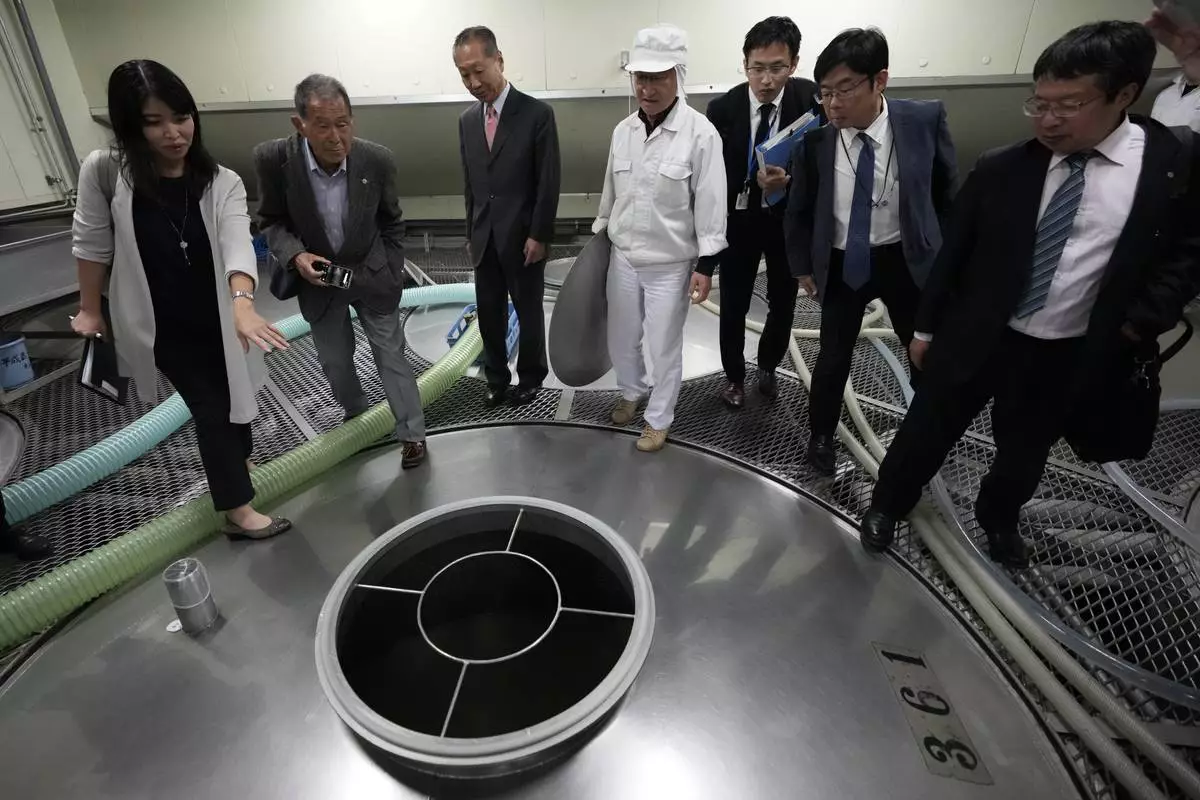
An interpreter, left, translates for Junichiro Ozawa, head of Ozawa Sake Brewery, third left, and his worker (in white) as Hitoshi Utsunomiya, far right, director of the Japan Sake and Shochu Makers Association, stands during a media tour at the brewery in Ome, on the western outskirts of Tokyo, Japan, Wednesday, Nov. 13, 2024. (AP Photo/Hiro Komae)

A worker for Ozawa Sake Brewery opens a lid of a tank to show sake being fermented during a media tour at the brewery in Ome, on the western outskirts of Tokyo, Japan, Wednesday, Nov. 13, 2024. (AP Photo/Hiro Komae)
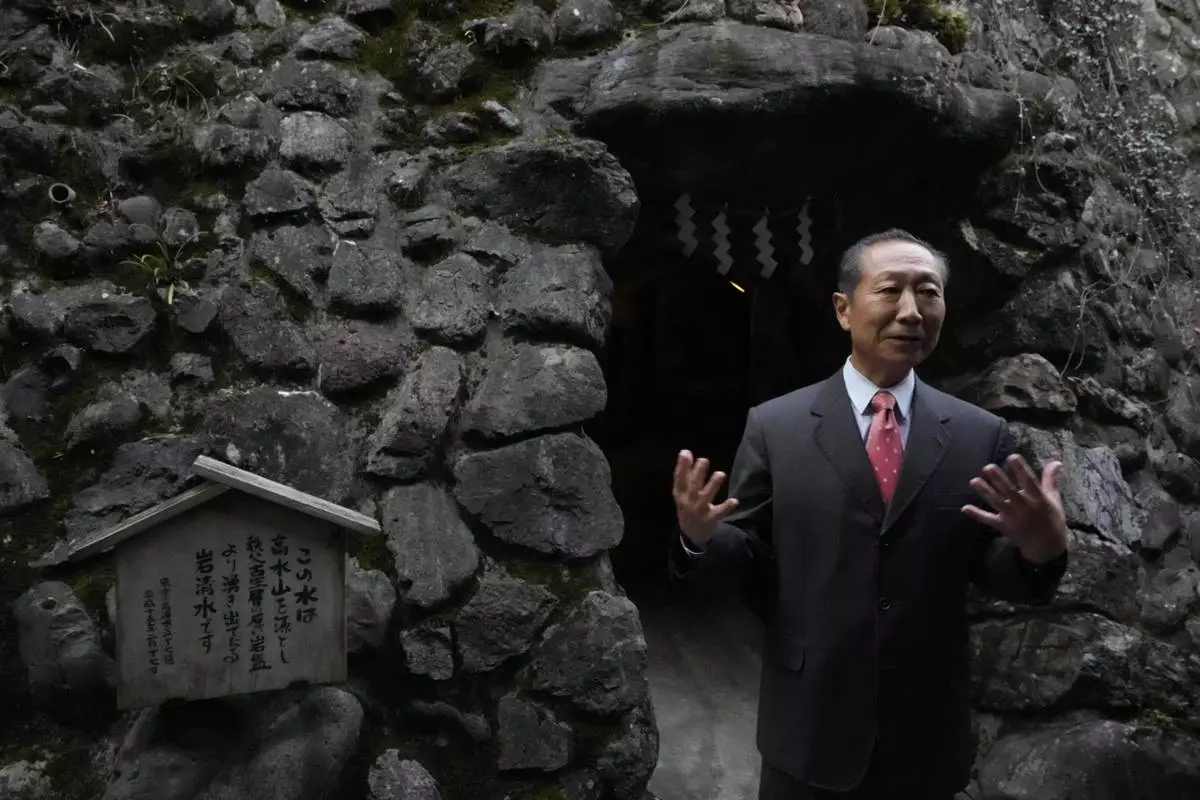
Junichiro Ozawa, head of Ozawa Sake Brewery, speaks during a media tour at the brewery in Ome, on the western outskirts of Tokyo, Japan, Wednesday, Nov. 13, 2024. (AP Photo/Hiro Komae)




